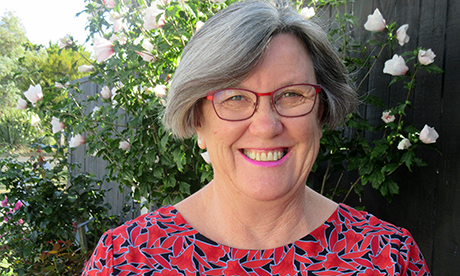Mention the word sin these day and people can become quite prickly.
Typical comments range from “There’s too much emphasis about sin”, “my sins put Jesus on the Cross”, “I’m unworthy”, “I’m a sinner” to “it’s all negative”.
This guilt-based old religion mentality, ties us into a God who is tough as old boots and glares down from above noting our every wrong move.
Such held over views from childhood, disrupts us from responding to a God who lavishly loves us to bits, each other and ourselves.
Can you imagine that!
The reality
Sin is real. Grace is real.
The Hebrew understanding of sin translates into khata, which means a failure to fulfil to be truly human. To ‘miss the mark’ in living and loving as God’s image and likeness as fully human alive men and women.
Sin is about immaturity. The consequences of sin in its various levels of seriousness causes injury to another and to our natural world.
To sin therefore, is that behaviour where we have disrespected relationships, failed to act justly and trashed the environment.
So to dismiss sin, or replace the word altogether with “wrong choices”, is to ignore an innate truth of our human condition.
St Paul “gets it”
St Paul gradually realises, as we all do at some point, that we are contradictory figures.
We do live in tension between what is truth or untruth, what is healthy or unhealthy or what is life giving or life draining. He names this an inward struggle.
He says “I cannot understand my own behaviour. I fail to carry out the things I want to do, and I find myself doing the very things I hate.
“When I act against my will, then, it is not my true self doing it, but sin which lives in me”. (Romans 7:19-20)
Yet St Paul isn’t on his own. I can identify with what he says – and reckon some of you can to.
Hard to believe that Paul, once named Saul, was a predator killer of Christians. Yet only owning his sin could he come to recognise that his behaviour originated from the Fall.
In the beginning
This Genesis story attempts to offer an explanation in how sin entered the world impacting on our beingness as women and men.
How Eve and Adam were in the very beginning living in right relationships with each other, comfortable in full view of God and in the garden called Eden.
All was blissfully heavenly.
Then antipathy entered breaking the friendship and leaving us all vulnerable to the inclination of sin.
But evil wasn’t going to have the last say. God’s plan of recovery restored this friendship when Jesus became the willing reconciliatory sacrifice.
It was sin that was destroyed by the cross. Grace never entered the world because grace always was.
Life and liberty
Back to St Paul. He so rightly says in Galatians 2:20. I have been crucified with Christ, and I live now not with my own life, but with life of Christ lives in me.
Easter changed absolutely everything. The Cross becoming a symbol of liberty enabling us to become our baptismal selves and not victims to this ancestral sin.
That’s St Paul’s point: – that God is good and not jealous as the serpent claims.
That is why we don’t have to be joyless or slaves to our false selves.
As Pope Francis suggests, we don’t have to look like we’ve come back from a funeral or live lives that seem like Lent without Easter (Evangelii Gaudium 6,10) and he is right.
It’s often when we come to that place of self-truth, in recognising where we ‘missed the mark’ do we encounter simultaneously God’s giftedness in Jesus.
Can we name what hampers us from being truly human as women and men of God and being created solely to be God’s own image? Can we name those occasions where we have ‘come up short’ in our ‘being’ the Glory of God.
Becoming our true selves
Pentecost Sunday holds the power to burst with life in our lives. To get excited about who we are.
“We become fully human when we become more than human, when we let God bring us beyond ourselves in order to attain the fullest truth of our being.” said Pope Francis in article 8 in Evangelii Gaudium.
The Redemption becomes the relationship to continually become a new creation converting over and over and over again to become our whole person.
That we don’t have to choose sin. We can say no when critically pulling another down to boost ourselves up. We can so no to blaming another for our mistakes.
We don’t have to lose our rag at another. We don’t have to kill off those of little account. We can stop and attend to a need we see in front of us.
By integrating sin, by owning our ‘stuff’ we are simultaneously claiming God’s investment in us – God’s intense hope and trust in us to be God’s image.
You have stripped off your old behaviour with your old self and you have put on a new self which will progress towards true knowledge the more it is renewed in the image of its creator. (Colossians 3:9-11)
And that’s worth getting excited about.
- Copy supplied
- Sue Seconi (pictured) is a writer and a parishioner from the Catholic Parish of Whanganui – te Parihi katorika ki Whanganui.
News category: Analysis and Comment.




